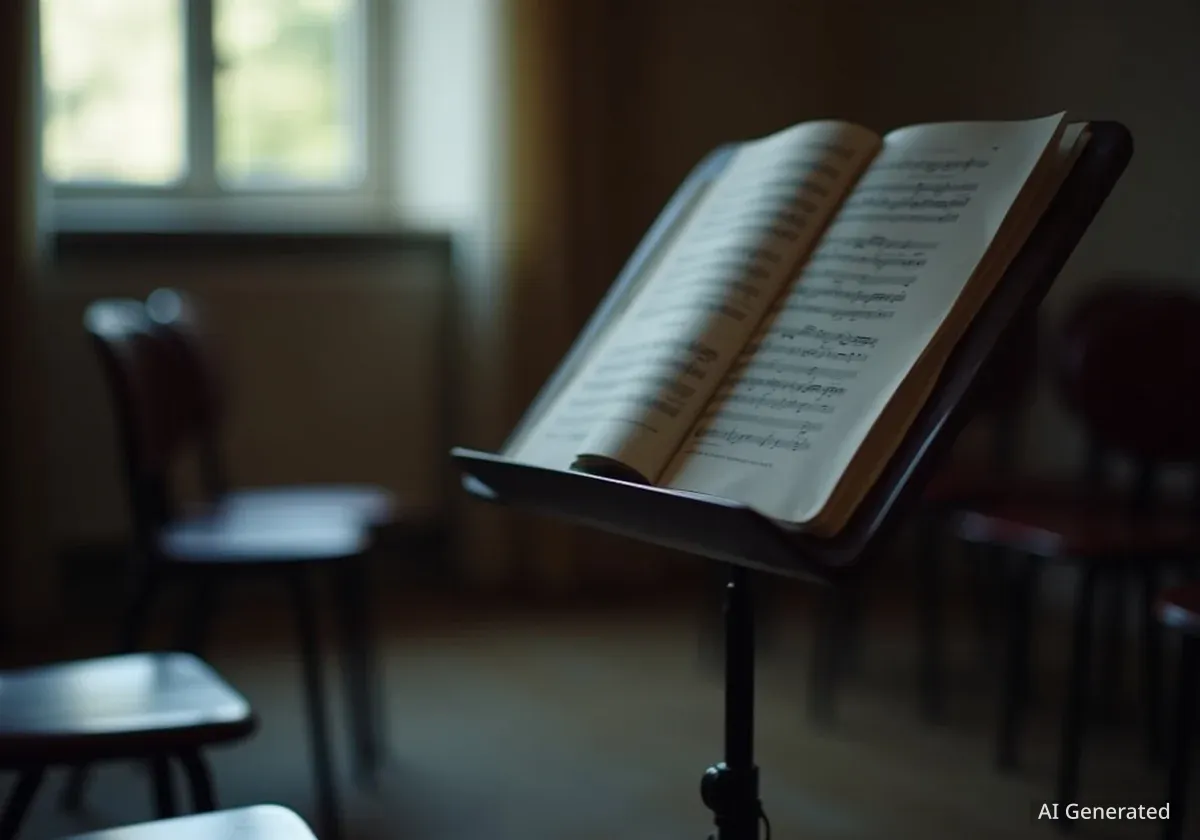The Harvard-Radcliffe Orchestra (HRO), one of the university's oldest student organizations, has been suspended for the remainder of the fall semester following an investigation into alleged hazing activities. The disciplinary action was taken after the orchestra's annual off-campus retreat in early September.
Key Takeaways
- Harvard College suspended the Harvard-Radcliffe Orchestra (HRO) for the fall semester due to hazing allegations.
- The allegations stem from an initiation event at a retreat where new members were allegedly blindfolded and offered vodka.
- While social activities are banned, the orchestra can continue academic rehearsals and concerts but cannot use the HRO name.
- The investigation coincides with Harvard's implementation of stricter policies to comply with the federal Stop Campus Hazing Act.
Details of the Suspension
Harvard College administrators informed the student board of the Harvard-Radcliffe Orchestra of the suspension shortly after its annual retreat, which took place on September 6 at the Greenwood Music Camp in Cummington, Massachusetts. HRO president Veronica A. Li ’26 subsequently announced the decision to the orchestra's members during a rehearsal.
The terms of the suspension prohibit the orchestra's student board from meeting for official activities and ban the organization from hosting any social events. According to three students familiar with the matter, this impacts traditional club activities like community dinners and formal gatherings.
Academic Activities to Continue Under Restrictions
Despite the suspension of its social functions, the orchestra's core musical activities will proceed. Federico Cortese, the HRO’s music director and conductor, clarified that rehearsals and concerts will continue because they are considered part of an academic course, Music 110R, which many members take for credit.
However, there are significant limitations. Cortese stated that the orchestra is not permitted to use the “HRO” name in its programming during the suspension period. Furthermore, the HRO Outreach Program, which involves members performing at local schools, has been halted.
“I want to make sure that the orchestra complies with the decision and everyone understands exactly the terms of the sanction,” Cortese wrote in a statement.
A Storied Institution
The Harvard-Radcliffe Orchestra is more than 200 years old and is a prominent fixture in the university's arts scene. It frequently performs with professional musicians and holds several major concerts each year, including one scheduled for October 4 that had already been publicized under the HRO name.
The Alleged Hazing Incident
The investigation focused on activities that occurred during the orchestra's annual retreat, designed as a bonding experience for new and returning members. According to multiple student accounts, the incident in question took place on a Saturday night at the camp.
New members were reportedly lined up by returning members and led into the dining hall. There, they were quizzed on the names of upperclassmen in the orchestra.
Blindfolds and Alcohol
Following the quiz, new members were blindfolded, taken outside, and walked up and down a hill before being brought back to a rehearsal barn. Three HRO members reported that while blindfolded, the new students were instructed to tap an upperclassman once to receive water or twice to be given a shot of vodka.
The event concluded with an activity where new members shared their hopes and fears about college, and older members offered advice. This exchange was intended to foster community within the group.
Student Defends Activities
Roshen S. Chatwal ’26, a member of the HRO social committee, voiced his disagreement with the College's decision. He argued that the activities did not constitute hazing and called the suspension “offensive” to individuals who have experienced more severe forms of hazing.
“What we did with freshmen, I view as one of the more harmless things you could do,” Chatwal said. He described the event as a “pretty PG, standard, run-of-the-mill initiation procedure that didn’t result in any harm or complaints in the moment.”
Broader Context of Anti-Hazing Policies
This incident is the second hazing investigation at Harvard this fall. Earlier in the semester, the Crimson Key Society, a student group that leads campus tours, was examined after members were seen in costumes during a scavenger hunt. After a review, College officials determined that the activity did not violate Harvard's hazing guidelines.
Both investigations follow Harvard's recent updates to its student organization policies. These changes were made to align with the Stop Campus Hazing Act, a federal law that mandates more stringent anti-hazing protocols at universities nationwide.
New Federal and University Rules
The federal law requires universities to formalize their hazing investigation procedures, publicly report on hazing incidents, and identify student organizations found in violation. In response, Harvard has implemented several new measures:
- Mandatory anti-hazing training for leaders of all 500+ student organizations.
- A commitment to publish a public report detailing hazing policy violations.
- The first report, scheduled for January 2026, will name organizations found responsible, describe the incidents, and outline the sanctions imposed.
Associate Dean for Student Engagement Jason R. Meier commented on the College's commitment to these policies. “We can’t share details about individual student matters, but the College is committed to following the Federal Stop Campus Hazing Act, Massachusetts state laws, and the Harvard University Hazing Policy,” Meier wrote.
He added, “Student Engagement is dedicated to working with student groups to create safe, positive, and welcoming experiences for everyone involved in clubs and organizations.” The suspension of the HRO marks a significant enforcement of these updated standards as the university navigates a new era of accountability for student group conduct.





